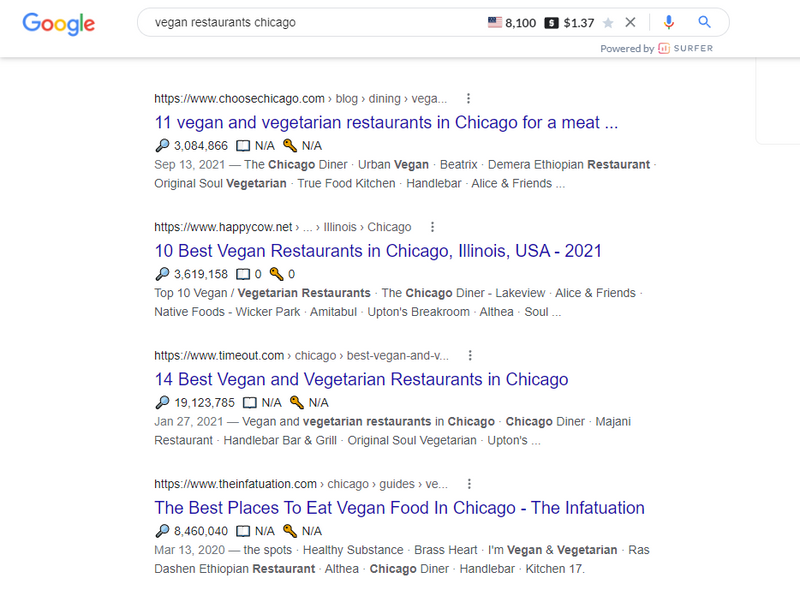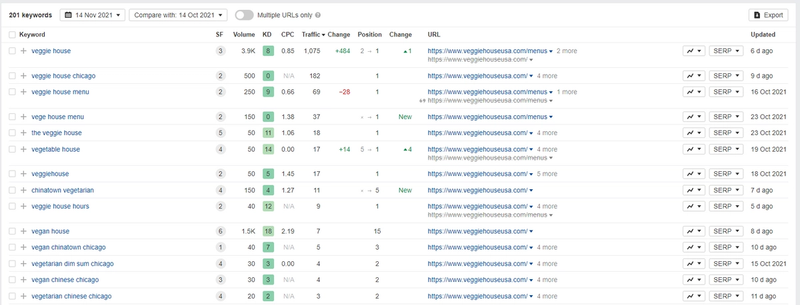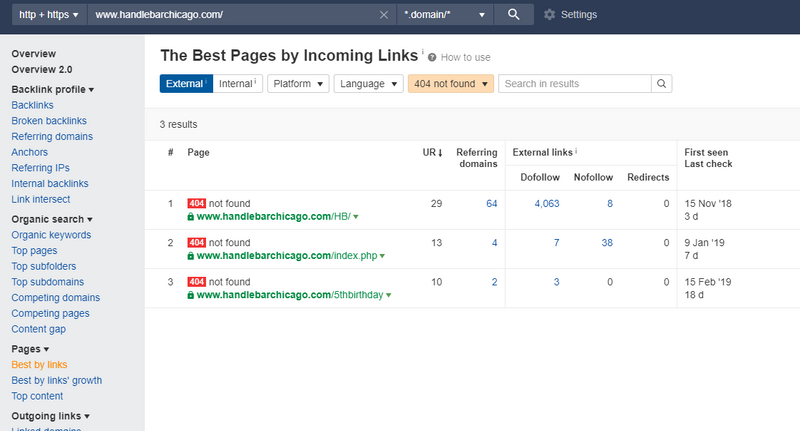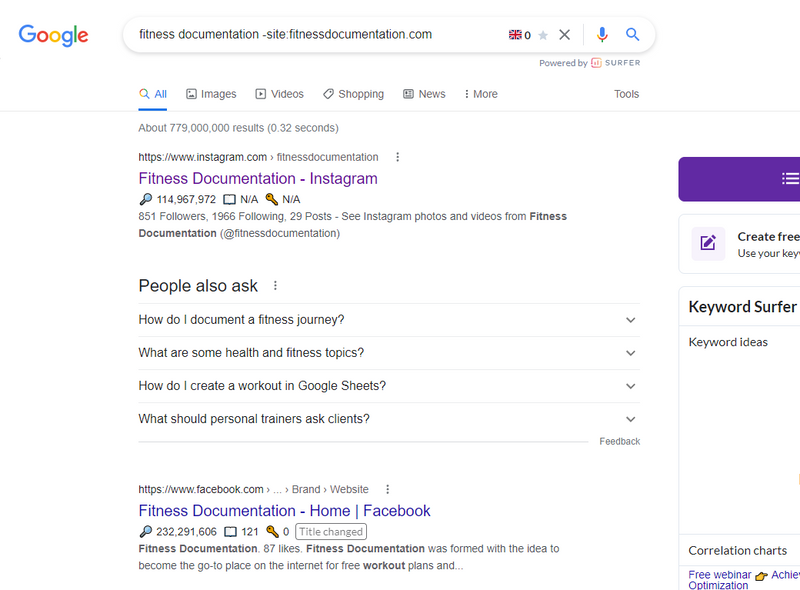6 Simple Local Link Building Strategies for 2021
Stefan Petrov
November 13th, 2021
Seo
Backlinks and quality content go hand in hand like peanut butter and jelly. You need both if you want to rank in search results. Acquiring backlinks is rather difficult and time-consuming though.
Quality content will land you a ton of backlinks organically, such as our Monthly Package, but that requires time and persistence. If you want to speed up the process, you’ll need to get your hands dirty.
This article covers 6 tips for local SEO link building. Before that though, let’s talk a little bit about local link building.
What is local link building?
Local link building is the process of acquiring locally relevant links that help a website or business reach the top spot in search results for certain geo-targeted keywords.
In essence, local link building aims to help websites gather more leads, customers, and ultimately revenue, through establishing quality backlinks that will help your site rank higher in search engines like Google and Bing.
How many local links do I need?
Generally speaking, ranking in a local search is a lot easier than ranking in even niche-specific global searches. The reason for that is simple. With a local search, you usually don’t have to compete with large corporations, and the number of businesses or websites targeting the same keyword in your local area is not that high.
Local businesses don’t need thousands of backlinks to rank in a local search. If you use SEO tools like Ahrefs or SEMRush, you can easily check to see what I mean.
The top search results for most local keywords all have fewer than 100 referring domains and, in many cases, even less than a dozen backlinks.
Writingful uses Ahrefs and SEMRush to optimize our clients’ blogs for local search results. Clients who offer physical goods or services locally report a massive boost after just a few months.
How to build local links
Local SEO link building is just as difficult and challenging as regular link building. You may be competing with fewer rivals but your targeted market is also smaller since it’s a local search. Everyone wants a slice of the same pie and there’s only so much to go around.
Here are 6 effective local link building strategies that I’ve been using for years.
1. Get links from other ranking sites
The easiest and by far quickest way of acquiring links is to simply use the keywords you want to rank for as search queries.
Enter a few relevant terms you want to rank for in Google or Bing and see what pops up. Obviously, you’ll probably see your competitors’ sites on the first page, and they won’t be interested in helping you rank, but a lot of other sites will.

Let's say you're a vegan restaurant in Chicago. Here's what 'vegan restaurants Chicago' yields when searched in Google.
Try to find aggregator or directory-type websites that crop up on the first page for your relevant keyword. Then, it’s just a matter of signing up and listing your business or website.
Since a lot of shoppers use these types of websites, it’s an easy way to both build a local link and attract potential customers who might not have found you otherwise.
2. Get links from your competitors
I’m not a fan of copying the competition since I think it’s a guaranteed way of always staying one step behind, but in this case, it’s completely justified.
Your competitors probably rank for keywords you don’t, and vice versa. So it stands to reason that if you can rank for their keywords AND yours, you’ll be much better off.

If you're a vegan restaurant and your competition is Veggie House, you can try and use some of the keywords they rank for to give yourself a boost.
Ahrefs has a very useful tool called Link Intersect. It allows you to add your website as well as your competition’s website and compare which sites link to your rival but not to you.
In addition to finding a ton of niche-specific sites, you’re also likely to find plenty of directory-style sites as well.
Many of them list business names, addresses, numbers, etc. Signing up or asking them to list you on the directory is a great way of acquiring a local backlink.
3. Create quality content that’s locally relevant
I would have listed this as number one but it requires more effort than the previous two strategies. The reality is that content is king when it comes to backlinks, and quality content trumps everything else.
We’ve helped numerous clients rank higher in local search results using content that’s locally relevant. Creating great content that readers love is an excellent way of building local reputation.
Granted, because of how specific these topics can get we sometimes see less traffic than we would have, had we just written a non-local blog, but the tradeoff is well worth it.
4. Reclaim lost links
This little trick requires no outreach. As your site evolves through the years, it’s possible that some links might be pointing to pages that no longer exist or have a different URL.
Redirecting old versions to point to the current versions is a way of gaining lost link value. Using Ahrefs’ Site Explorer you can easily find lost links.
Just paste your website in the search bar, go to ‘Best by Links’, add a ‘404 Not Found’ filter, and sort by descending referring domains so you can prioritize the top links first.

If you don’t have Ahrefs you can achieve the same thing using Google Search Console and find out which links are broken.
We once had a client who had over 300 different broken links without even knowing about it. Needless to say, simply fixing them gave him quite an SEO boost.
5. Claim unlinked mentions
This creative link building tactic doesn’t work for everyone, but it can give you valuable backlinks if your business is a right fit.
Sometimes other websites will mention your brand or company without giving you credit (i.e. a backlink). Reaching out and asking for a mention is the easiest way of acquiring a single backlink, but as I said, it won’t work for everyone.

In the example above, I used FitnessDocumentation to find mentions of them but excluded the actual FitnessDocumentation site itself. As you can see, this is sometimes a bit confusing, especially if your business name is generic or refers to something else.
This tactic sees the most success with businesses that get a lot of exposure and news coverage. It works best with business names that are personal, for example 'Michael Scott Paper Company'.
If your company is active in the community and news agencies have covered it a lot, or if you’re a lawyer that has been mentioned numerous times, try claiming unlinked mentions.
6. Add internal links
Internal links are links within a website that point to other portions of the same website. The Writingful footer for instance contains links to our Pricing Page, our Blog Page, etc.

Although it’s not a local link-building tactic per se, your site is a local site in a way, and what better way to boost SEO than a well-thought-out internal linking strategy. Internal links are a valuable factor for Google when it comes to search engine rankings.
Once a month, I go over older blog posts and update them to include internal links that point to newly published blog articles.
I recommend setting aside a few hours each month for this specific activity alone. The end result is well worth it.
Internal linking is great for SEO but it does wonders for reducing bounce rate and increasing website lingering as well. The more exciting articles you can offer your readers, the more likely they are to stay on your website and read more content.
Did you enjoy this article?
If you did and want to order similar content for your own website, click the button below. We cover most industries and topics. If you have any questions, don't hesitate to contact us at [email protected]
About the author
Stefan is the founder and owner of Writingful. He's been working as a freelance writer for over 6 years, writing about anything and everything. His expertise lies in the Automotive industry, SEO and IT. He even built Writingful using Next.js and Sanity.io.
Services
Content Writing
Blog Writing
27 Old Gloucester Street
London, United Kingdom
WC1N 3AX
Privacy Policy
Terms of Use
© 2021 Writingful.
All Rights Reserved.